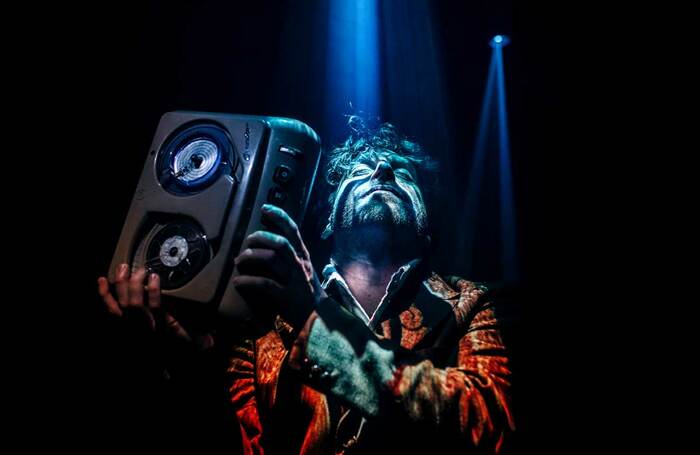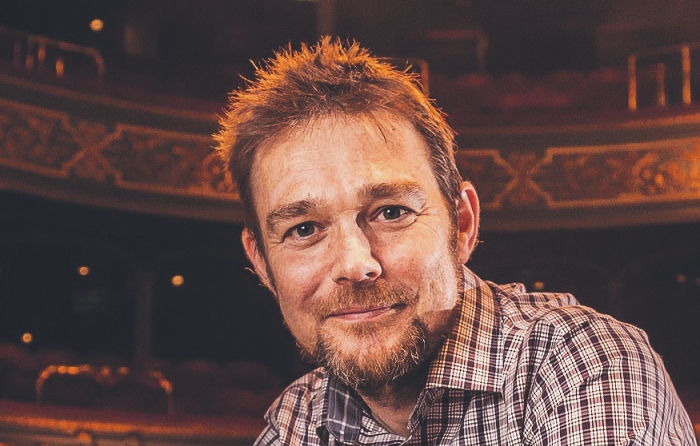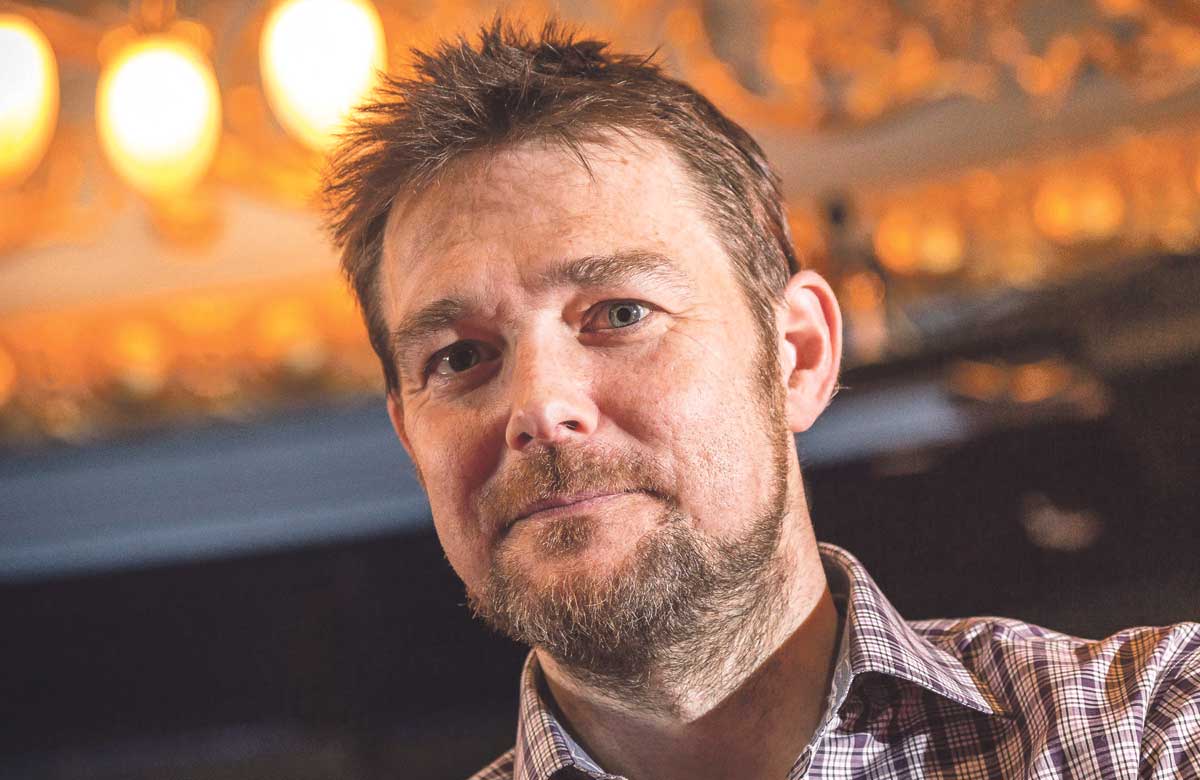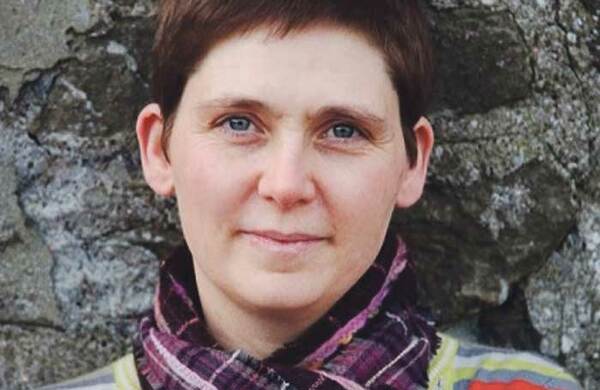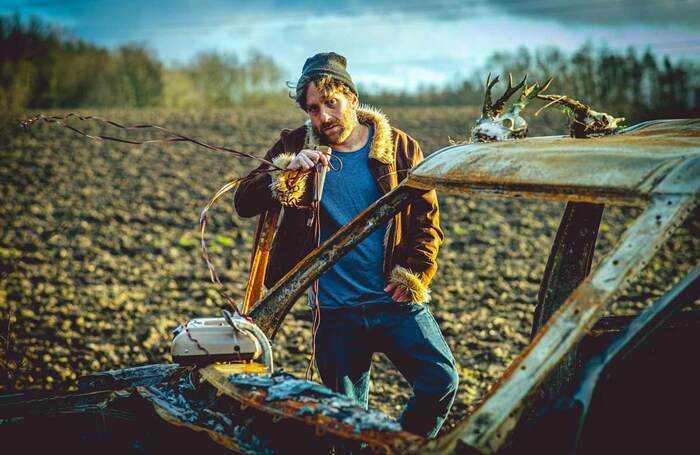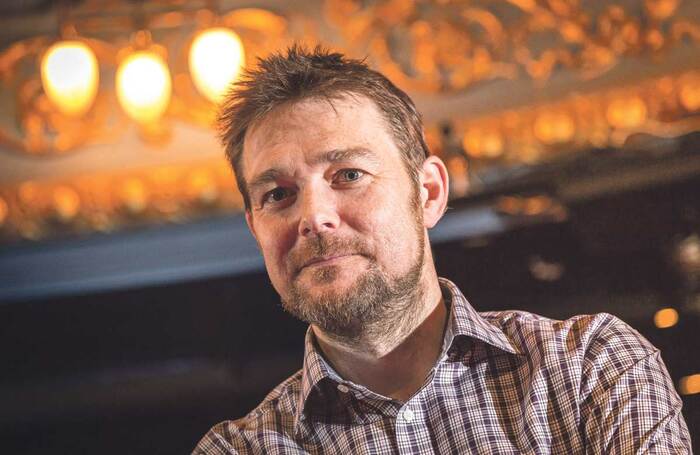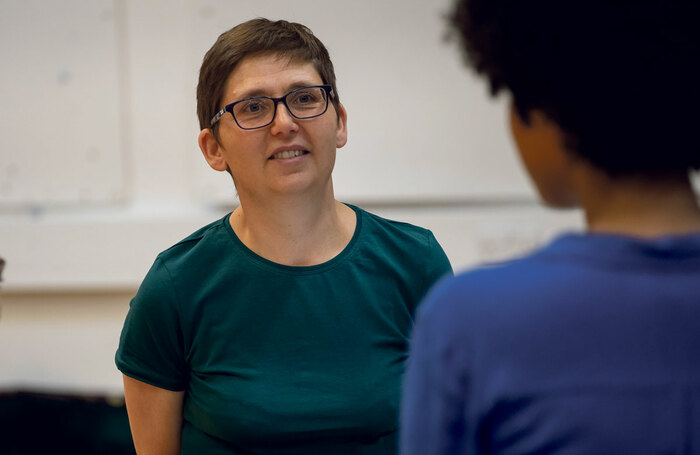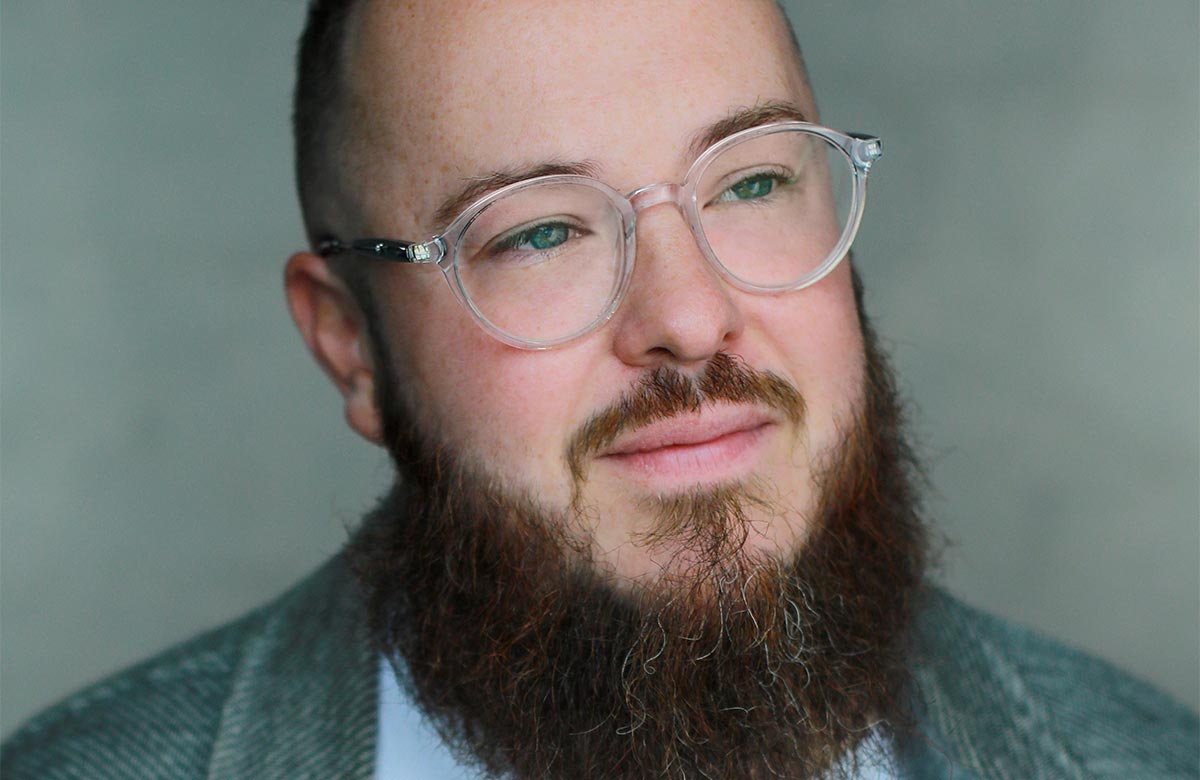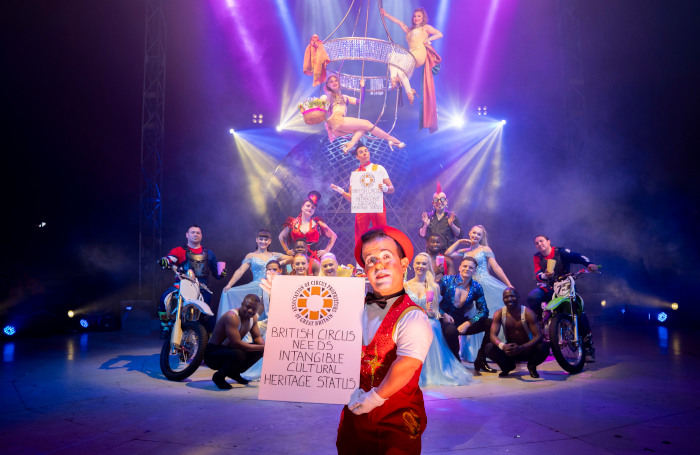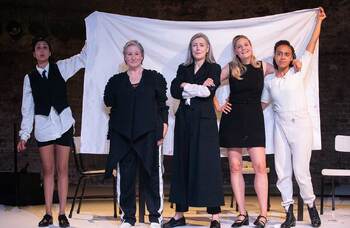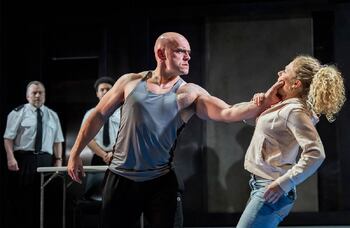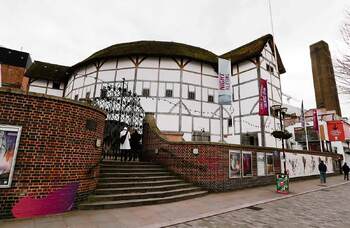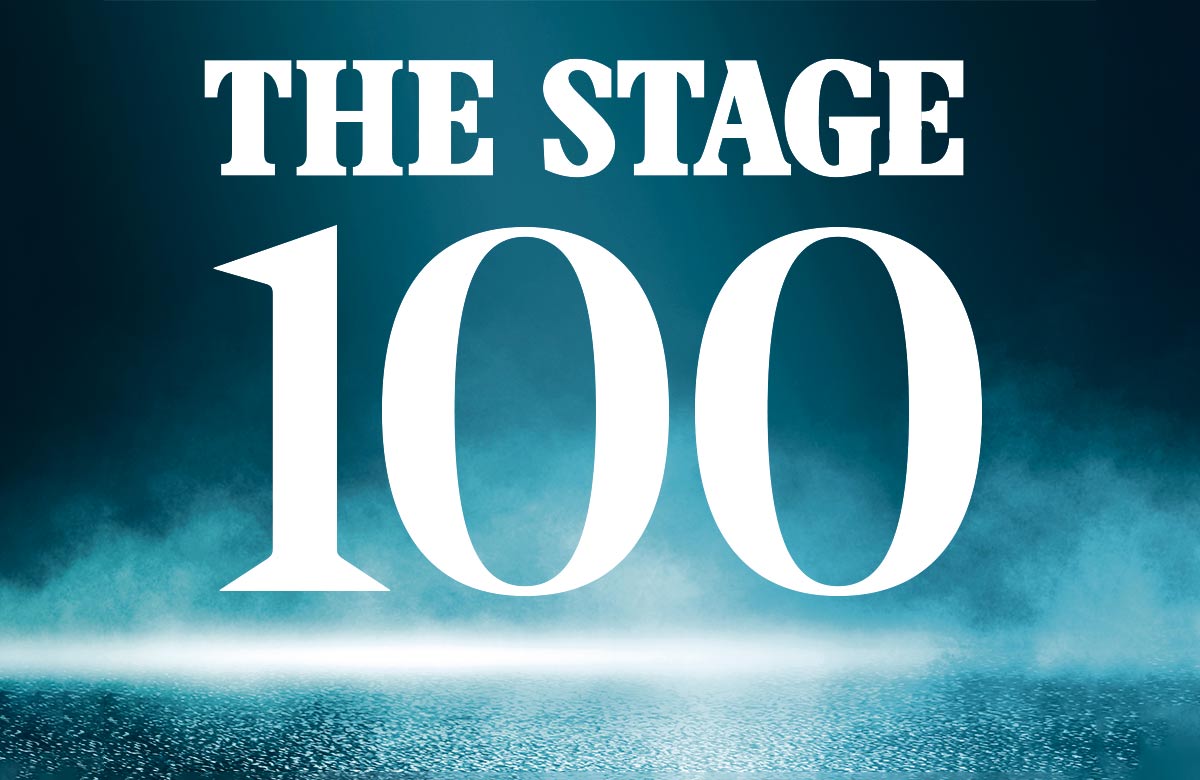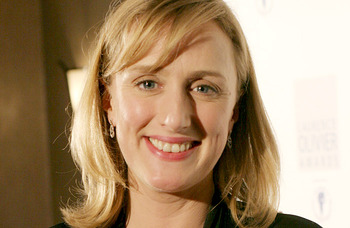The Portal podcast: 'We have to think that one day we’ll do this in front of an audience'
Creating an immersive podcast in lockdown, which captures the club culture of the 1990s, has presented challenges for writer and composer Martin Green, director Wils Wilson and dramaturg David Greig, but as they tell David Pollock, the experience has only made them more excited for when the show can finally be performed on stage
Martin Green sighs as he imagines what could have been for his new work, The Portal. “It was the most unlikely show for this moment,” he says. The Scotland-based musician – best known as one third of the acclaimed folk trio Lau and as composer of large-scale musical works such as the migration meditation Flit, which premiered at the Edinburgh International Festival in 2016 – had to put a stop to what could have been his masterpiece as a result of the pandemic.
“One of the things that happens in the show is everybody becomes very physically close – that was part of the point,” he continues. “That intensity of very small clubs is part of their excitement – although now it feels like it might be quite a while before we can persuade 150 people to stand centimetres apart from each other.”
To hear Green talk about his plans for The Portal is a poignant reminder of what – for the moment – we’re all missing. “The show began with thinking: how do we use dance as a society and how do we construe it?” he says, referring both to the English folk dances and the illegal early 1990s raves that were a feature of his youth in Cambridge.
“Morris dancing is both eccentric and conservative, and rave is something that was once quite frightening and anarchic, but is now pretty mainstream,” he continues. “So they seemed interesting to consider together, and rather than just talking about them, the idea of the show was to get into them a bit. We had various fake rituals that we went through with the audience, and also a proper club scene.”
The production was to be directed by Wils Wilson, with dramaturgical help from the acclaimed playwright and Edinburgh Royal Lyceum artistic director David Greig. Green – the piece’s writer and composer – had secured The Portal’s promenade premiere at the Southbank Centre in London, while it was moving closer to joining the line-up of Edinburgh International Festival 2021.
All of this is now on hold, not just because of the nationwide theatre shutdown, but because the work’s integral lack of physical distancing may render its execution difficult for some time to come. Yet Green’s world is made up of the aural as much as the physical, and his instinct was to continue with the work as a different kind of immersive experience – a specially produced podcast series, rather than a simple audio recording (both the Southbank and EIF remain among the producers).
“In the end, the whole space turned into a rave and everybody danced,” says Wilson of the original plan. “Martin talked people through this experience of losing themselves in the dance, a sort of ritual that we’d developed. We had a research and development session with a small audience, taking them through that process to see what it was like. Could we get them to feel it and dance by the end?”
‘It feels like quite a while before we can persuade 150 people to stand centimetres apart from each other’ – Composer Martin Green
She continues: “We’d gone quite far down that road, but obviously everything changed. Martin pretty quickly said: ‘Let’s make an audio piece’ because he’s really happy in that world. So then we had an interesting process of asking what it was going to be like with people listening on headphones, without the physical side. People might dance, but if they do they’re on their own, so we don’t have that communal aspect – what does that mean for the story?”
Without the intended experiential aspect – although Green’s sound design still plays an enormous part, with musical contributions from electronic producer James Holden, folk singer Radie Peat and folk musician Brìghde Chaimbeul – the narrative element of the work had to come to the fore. The cast includes Dylan Read, Anna Russell-Martin and Alison Peebles.
“There are two parallel stories,” says Greig, who describes his role as being “a pal” and “a shaper”. “The first is Martin going back into his own childhood, and a terrifying and mind-opening encounter with a kind of mystical folk creature – a Green Man figure called the Tup. He remembers getting deeply into rave music in the 1990s, and losing his mind a bit, and in the midst of this he discovers a folk recordist from the 1940s, which leads into what’s really the key story of the play.
“It’s about this man and his recording of a woman in Selkirk, which begins both an obsession and an affair – a kind of love story – but also a story about the pursuit of sound and music, and Martin’s own descent and re-emergence from trance and transcendence. It’s a story of this recordist, an academic, who is determined to capture sound, and another spirit who is essentially interested in the moment. Martin became obsessed with the story of finding out what happened to these two people.”
Just hearing Greig describe this induces pangs for the communal aspects of music and dance, and hopefully this is recreated in the space between our headphones. “The plot has stepped up quite a bit in this version, and that pulls you through,” says Wilson. “It’s made up of 12 episodes, so you have that sense of wanting to know how it works out and what happens next. It’s still quite immersive because Martin is an amazing sound designer and composer, and the world that he creates transports you to a different place through sound.
“We’ve recorded it all remotely, and I did have a moment of feeling quite overwhelmed when everybody’s faces appeared on Zoom and we were almost in a room together,” she continues. “That bit I really miss, but to be honest, I was just really delighted to be making something – to be able to put my brain to this lovely problem of doing a live show that’s now going to be audio-only, and feeling that we’re making a piece of art that is going to be in the world whatever happens. If we’re all locked down again, you can still go for your walk and listen to a podcast, and hopefully it will connect with people.”
‘I was delighted to be able to put my brain to this lovely problem of doing a live show that’s audio only’ – Director Wils Wilson
The Portal will present itself as an alternative to the live theatrical experience we love – not as a replacement for it, of course, but as a way of drawing the dots of human experience while some avenues to work have been closed off.
Wilson and Greig have their own ideas about what theatre’s focus should be right now. Wilson, based in the Scottish Borders, feels that community outreach and work in schools are an urgent necessity, while Greig, with his Lyceum hat on, is looking forward to more outdoor work and embracing recording and streaming technology as an integral part of theatre’s future. Although The Portal’s onstage future is uncertain, all concerned seem happy to have made a piece of art that exists on its own terms.
“Thomas Ostermeier of the Schaubühne in Berlin said maybe we shouldn’t do anything until it’s completely over, then all theatres should open with a massive Dionysian rave,” says Greig. “That’s certainly a connection to what Martin’s interested in with The Portal – dance as interconnector. Until we really are able to reconnect fully, it’ll always be a slightly…” He tails off.
“A lot of people are saying about new work they’re putting online: ‘One day we hope to bring this to the stage,’ right? What’s the traditional Jewish greeting? ‘Next year, I’ll see you in Jerusalem?’ I think for every show made just now, there’s a certain level of, ‘I’ll see you at the opening night’. Even if it’s a dream, we have to keep it alive and think that one day, somehow, we’ll do this on stage in front of an audience.”
The Portal will be released on podcast platforms on September 25. The accompanying album will be available at martingreenmusic.co.uk
Opinion
Recommended for you
Opinion
Recommended for you
Most Read
Across The Stage this weekYour subscription helps ensure our journalism can continue
Invest in The Stage today with a subscription starting at just £7.99
